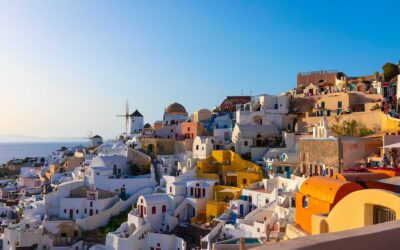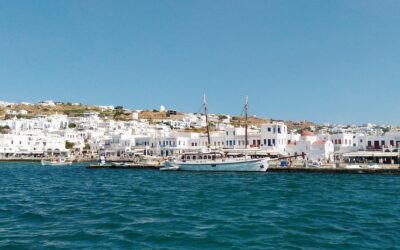As travelers increasingly seek authentic and eco-friendly experiences, Greece is poised to emerge as a leader in sustainable tourism by 2025. With its rich history, stunning landscapes, and vibrant culture, the Mediterranean nation is embracing a transformative approach that not only protects its natural and cultural heritage but also enhances the visitor experience.
Emphasizing Responsible Travel
Greece’s commitment to sustainable tourism is rooted in the principle of responsible travel. The government, along with local organizations and businesses, is implementing policies that promote eco-friendly practices. Initiatives include encouraging visitors to respect local customs, minimize waste, and engage with communities in meaningful ways. This shift reflects a growing recognition that tourism should benefit both travelers and the destinations they visit.
Greener Accommodations
By 2025, travelers will likely find an increasing number of eco-conscious accommodations. Hotels and guesthouses are investing in green technologies, such as solar energy, water conservation systems, and waste recycling programs. Moreover, many establishments are choosing locally sourced, organic food options to reduce their carbon footprint and support local farmers.
The Rise of Eco-Resorts
In destinations like the Cyclades and Crete, eco-resorts are blooming, offering visitors unique experiences that emphasize the natural beauty of the islands. These resorts often feature activities like hiking, kayaking, and organic farming, allowing guests to connect with the environment and practice sustainability.
Integrated Transport Solutions
A significant challenge for sustainable tourism is transportation. Greece is addressing this by improving public transport options, such as buses and ferries, while promoting alternatives to car travel. By 2025, many regions will have better interconnected transport systems, making it easier for tourists to explore without relying solely on cars.
Additionally, investments in electric vehicle charging stations are underway, making eco-friendly vehicles a practical option for travelers looking to explore off the beaten path.
Cultural Heritage Preservation
A vital aspect of sustainable tourism in Greece is the preservation of its rich cultural heritage. By fostering community involvement and creating educational programs, Greece is ensuring that local traditions, crafts, and histories remain vibrant. This focus not only enriches the tourist experience but also empowers local communities to thrive economically.
Supporting Local Artisans
Visitors in 2025 will find opportunities to engage with local artisans and participate in workshops that celebrate traditional crafts such as pottery, weaving, and olive oil production. These choices allow travelers to take home unique souvenirs while supporting local economies.
Nature Conservation Initiatives
Greece is home to diverse ecosystems, from its stunning coastlines to mountainous regions and lush forests. By 2025, the country aims to implement more conservation programs to protect natural habitats and biodiversity. National parks and protected areas will play a crucial role in these efforts.
Eco-Tourism and Wildlife Watching
Eco-tourism, focusing on wildlife and natural experiences, is expected to gain traction. Tour operators specializing in wildlife watching, birding, and hiking in nature reserves will offer sustainable options that prioritize environmental stewardship and education.
Community Engagement and Participatory Tourism
By actively involving local communities in tourism development, Greece is ensuring that tourism benefits all stakeholders. Initiatives that promote participatory tourism will empower locals to share their stories and insights with visitors, thereby fostering deeper connections and mutual understanding.
A Bright Future Ahead
As Greece approaches 2025, the focus on sustainable tourism reflects a broader global trend towards environmental responsibility. By emphasizing eco-friendly practices, cultural preservation, and community engagement, Greece is not just safeguarding its treasures for future generations; it is also providing travelers with richer, more meaningful experiences.
In this new era, visitors to Greece will not only explore its breathtaking landscapes and historic sites but also become stewards of its environment and culture. Through this collaborative journey, tourists and locals alike can create a sustainable legacy that celebrates the beauty and heritage of Greece for years to come.










